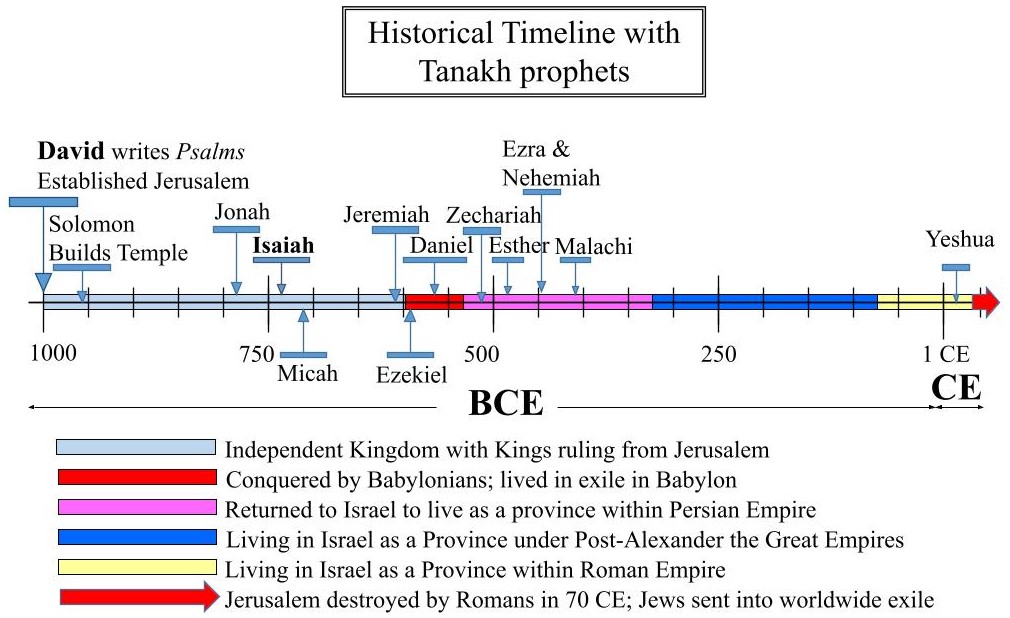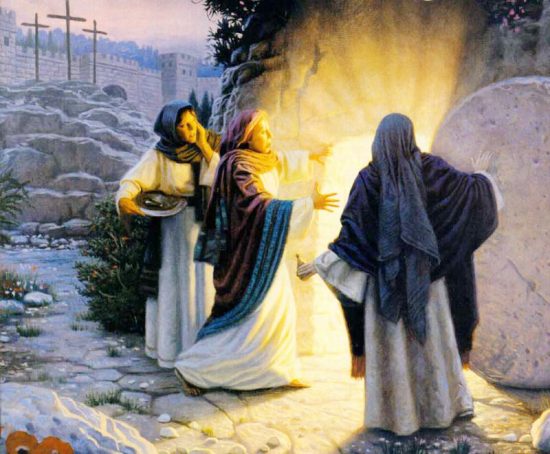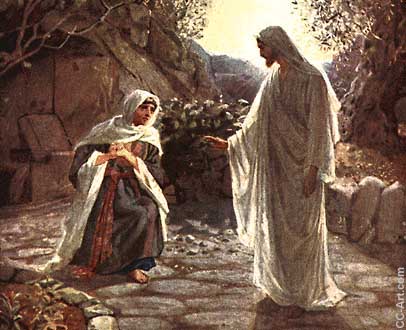Messiah’s “cut off” Detailed Hundreds of Years Beforehand
Previously we looked at Daniel’s prediction of the coming Messiah’s ‘cutting off’ after a specified cycle of years. Yeshua’s triumphant entry into Jerusalem (often called Palm Sunday) fulfilled Daniel’s prophecy exactly 173 880 days after the Persian Decree to restore Jerusalem. The phrase ‘cut off’ referred to Isaiah’s imagery of the Branch shooting up from the seemingly dead stump. But what did he mean by it?

Isaiah had also written other prophecies in his book, using other themes as well as the Branch. One such theme was about the coming Servant. Who was this ‘Servant’? What was he going to do? We look at one prophecy passage in detail, reproduced in full below, with only some comments inserted.
The Coming Servant Introduced
See, my servant will act wisely;
Isaiah 52: 13-15
he will be raised and lifted up and highly exalted.
14 Just as there were many who were appalled at him—
his appearance was so disfigured beyond that of any human being
and his form marred beyond human likeness—
15 so he will sprinkle many nations,
and kings will shut their mouths because of him.
For what they were not told, they will see,
and what they have not heard, they will understand.
Isaiah describes a human male since he refers to the Servant as ‘he’, ‘him’, and ‘his’. Isaiah prophetically predicts the future (from the phrases ‘will act..’, ‘will be raised up…’). But what was the prophecy about?
Sprinkling – The Priest’s Job
When the ancient Temple priests offered sacrifices for the Israelites they sprinkled blood on them. This symbolized the forgiving and covering of their sins. But Isaiah prophesied that the coming Servant would sprinkle ‘many nations’. So Isaiah saw that this Servant would provide forgiveness for Gentiles like those priests did for the Jewish worshipers. This paralleled the prophecy that the Branch would be a priest since only priests could sprinkle blood. This global scope of ‘many nations’ follows those promises made centuries earlier to Abraham that ‘all nations’ would be blessed through him.
But in sprinkling the many nations Isaiah foresaw the very ‘appearance’ and ‘form’ of the Servant disfigured and marred. He promised that one day the nations ‘will understand’.
The Servant Despised
Who has believed our message
Isaiah 53:1-3
and to whom has the arm of the Lord been revealed?
2 He grew up before him like a tender shoot,
and like a root out of dry ground.
He had no beauty or majesty to attract us to him,
nothing in his appearance that we should desire him.
3 He was despised and rejected by mankind,
a man of suffering, and familiar with pain.
Like one from whom people hide their faces
he was despised, and we held him in low esteem.
Though the Servant would sprinkle many nations, he would also be ‘despised’ and ‘rejected’, full of ‘suffering’ and ‘familiar with pain’.
The Servant Pierced
Surely he took up our pain
Isaiah 53:4-5
and bore our suffering,
yet we considered him punished by God,
stricken by him, and afflicted.
5 But he was pierced for our transgressions,
he was crushed for our iniquities;
the punishment that brought us peace was on him,
and by his wounds we are healed.

The Servant would take ‘our’ pain. ‘Pierced’ and ‘crushed’ in ‘punishment’ would also be his lot. This punishment will bring us (those of the many nations) ‘peace’ and healing.
Secular and biblical sources tell us that about 2000 years ago (but still 700+ years after Isaiah) Yeshua was crucified. In that execution the authorities literally pierced him with the nails of the crucifixion.
Our Sin – on Him
We all, like sheep, have gone astray,
Isaiah 53:6
each of us has turned to our own way;
and the Lord has laid on him
the iniquity of us all.
The Bible defines sin as ‘missing the intended target’. Like a bent arrow we go our ‘own way’. This Servant will carry that sin (iniquity) which we caused.
Lamb to the Slaughter
He was oppressed and afflicted,
Isaiah 53:7
yet he did not open his mouth;
he was led like a lamb to the slaughter,
and as a sheep before its shearers is silent,
so he did not open his mouth.
The Servant will be like a lamb going to the ‘slaughter’. But he will not protest or even ‘open his mouth’. Abraham had a ram substitute for his son and Abraham sacrificed the ram in place of Isaac. This coming Servant would carry a similar role as that ram.
‘Cut off’ from Living
By oppression and judgment he was taken away.
Isaiah 53:8
Yet who of his generation protested?
For he was cut off from the land of the living;
for the transgression of my people he was punished.
The Servant dies (‘cut off’ from the ‘land of the living’). Daniel used this exact term (‘cut off’) in prophesying what would happen to the Messiah after his presentation. Isaiah here predicted in greater detail that ‘cut off’ meant ‘cut off from the land of the living’! So, on that fateful Good Friday Yeshua died, literally ‘cut off from the land of the living’. This occurred just after he presented himself as the Messiah in his Triumphant entry.
The Paradox of His Burial

He was assigned a grave with the wicked,
Isaiah 53:9
and with the rich in his death,
though he had done no violence,
nor was any deceit in his mouth.
They executed Yeshua as a criminal (‘assigned a grave with the wicked’). But the gospels record how a rich man, Joseph of Arimathea, buried the body of Yeshua in his own tomb. Yeshua literally fulfilled both sides of the paradox. Though he was ‘assigned a grave with the wicked’, he was also ‘with the rich in his death’.
G-d’s Plan all along
Yet it was the Lord’s will to crush him and cause him to suffer,
Isaiah 53:10
and though the Lord makes his life an offering for sin,
he will see his offspring and prolong his days,
and the will of the Lord will prosper in his hand.
This whole cruel death was not some terrible accident or misfortune. It was explicitly “the LORD’s will” to crush him.
But why?
Israelites in Isaiah’s time brought lambs to sacrifice as offerings for their sin so that they could receive forgiveness. So here the ‘life’ of this Servant would likewise also be an ‘offering for sin’.
For whose sin?
Considering that ‘many nations’ would be ‘sprinkled’ (see above), it is the sin of the peoples in the ‘many nations’. Those ‘all’ who have ‘turned away’ and have ‘gone astray’. Isaiah is talking about you and me.
Life after Death
After he has suffered,
Isaiah 53:11
he will see the light of life and be satisfied;
by his knowledge my righteous servant will justify many,
and he will bear their iniquities.

Though the Servant’s ordeal is horrible, here the tone changes to optimism and triumph. After the terrible suffering detailed previously, this Servant will see ‘the light of life’.
He will come back to life?!
Isaiah prophesied the seemingly impossible 750 years before Yeshua made the case for his resurrection compelling.
And in so ‘seeing the light of life’ this Servant will ‘justify’ many. To ‘justify’ is the same as giving ‘righteousness’. G-d had set the pattern by previously ‘crediting righteousness’ to Abraham. In a similar way this Servant will justify, or credit, righteousness to ‘many’.
Legacy among the Great
Therefore I will give him a portion among the great,
Isaiah 53:12
and he will divide the spoils with the strong,
because he poured out his life unto death,
and was numbered with the transgressors.
For he bore the sin of many,
and made intercession for the transgressors.
Yeshua of Nazareth ranks among the most influential among all the great people of history. But, unlike other great men of history, Yeshua did not lead a mighty army or conquer huge swaths of land. He did not write a great book or come up with a new philosophy. He did not amass a great fortune or make a brilliant scientific discovery or technological breakthrough. Unlike other great men of history, Yeshua made his legacy mostly through his crucifixion and the meaning that people attach to his death. Isaiah could not have better predicted the reason for the coming Servant’s worldwide legacy than he did with this conclusion.
Fingerprints of G-d’s handiwork
Isaiah’s prophecy of the Servant points directly to the crucifixion and resurrection of Yeshua. Therefore some critics say that the gospel writers made up their story specifically to ‘fit’ this Servant passage. But Isaiah’s conclusion also defies these critics. The conclusion is not a prediction of the crucifixion and resurrection as such, but of its impact many years later. And what does Isaiah predict? This Servant, though he will die as a criminal, will one day be among the ‘great’. The gospel writers could not make this part ‘fit’ the gospel narratives. The gospels were only written a few decades after Yeshua’s crucifixion. At that point the impact of Yeshua’s death was doubtful.
In the eyes of the world, Yeshua was just the executed leader of a rejected cult when the gospels were written. We, 2000 years later, can see the impact of his death. We can understand how the subsequent course of history has made him ‘great’. With simple human foresight the gospel writers could not have foreseen that.
But 750 years before Yeshua even lived Isaiah predicted it.
The only explanation is that G-d revealed it to him. Only G-d could conceivably know the future that far ahead. That Isaiah wrote this down, and that it was preserved, along with the other prophecies of Yeshua, constitutes evidence that the purposes advanced in the Bible are His. It has the fingerprints of the Divine handiwork all over it.